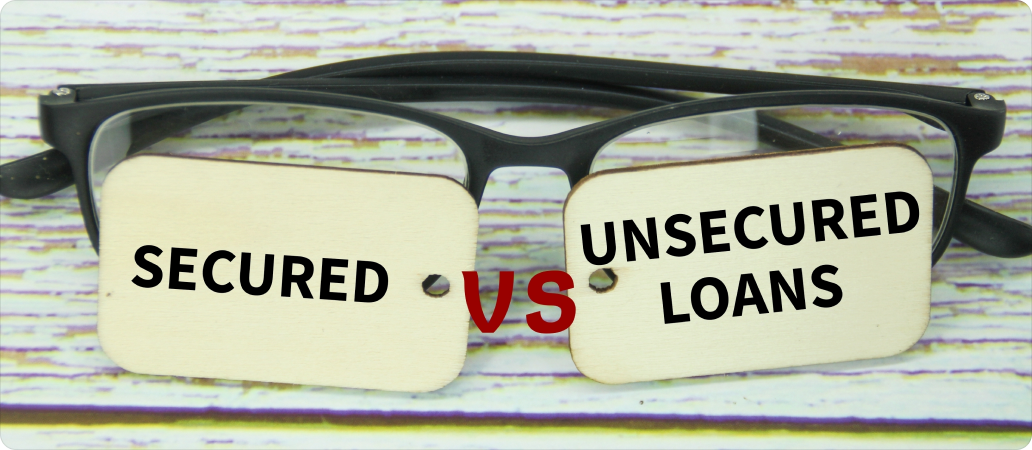When you're in the position of making a financial decision, especially as a business owner or individual looking to manage cash flow, expand operations, or consolidate debt, the choice between a secured and unsecured loan can feel daunting. You’ve clicked on this article because you’re evaluating the best way to access funds without compromising your financial stability. Whether you're a small business owner considering options like Unity Small Finance Bank’s unsecured business loans or exploring other secured financing solutions, understanding the pros and cons of each loan type is crucial. This guide will help you navigate these choices, aligning with your risk appetite, financial goals, and immediate needs.
Secured Loans vs. Unsecured Loans: Key Differences
| Aspect | Secured Loans | Unsecured Loans |
|---|---|---|
| Collateral | Requires collateral (e.g., property, equipment) | No collateral required |
| Interest Rates | Generally lower due to reduced lender risk | Higher rates due to the lack of collateral |
| Loan Amount | Higher borrowing limits, often directly linked to the value of collateral | Lower limits, determined by creditworthiness and income |
| Approval Process | Slower, due to the need for asset valuation and extensive documentation | Faster, with simpler documentation and quicker disbursal |
| Risk | Risk of asset loss if you default | No risk of losing personal or business assets |
| Eligibility | Easier to qualify even with lower credit scores | Stricter, with high emphasis on good credit scores and low debt-to-income ratios |
| Repayment Terms | Longer, often with more flexible schedules | Shorter, fixed repayment terms with higher monthly payments |
| Processing Time | Longer, as the asset must be appraised | Generally quick, ideal for urgent funding needs |
Pros of Secured Loans
Lower Interest Rates: Since secured loans involve collateral, lenders are at lower risk, allowing them to offer more competitive interest rates, saving you money in the long run.
Higher Loan Amounts: The value of your collateral directly impacts the loan amount you can secure, making it suitable for substantial investments like business expansion, property acquisition, or major equipment purchases.
Flexible Repayment Terms: Collateral gives you more negotiating power, often leading to longer repayment periods and more manageable monthly installments, reducing strain on your cash flow.
Cons of Secured Loans
Risk of Asset Loss: Defaulting on a secured loan means risking the loss of your pledged asset, which could be your home, business property, or valuable equipment, potentially disrupting personal or business stability.
Longer Processing Time: The requirement of collateral assessment, valuation, and legal checks prolongs the loan approval process, making it less ideal for urgent funding needs.
Not Accessible to All: Without valuable assets to pledge, many borrowers, including startups and young professionals, might find it difficult to qualify for secured loans, limiting their financing options.
Pros of Unsecured Loans
No Collateral Required: Unsecured loans, like the ones offered by Unity Small Finance Bank, eliminate the need to pledge assets, making them accessible to a broader audience, including those without substantial collateral.
Faster Approval and Disbursement: With no asset evaluation needed, unsecured loans are processed quickly, providing immediate access to funds for businesses needing quick liquidity.
Credit Building Opportunity: Successfully managing unsecured loans by making timely payments can help improve your credit score.
Cons of Unsecured Loans
Higher Interest Rates: To compensate for the increased risk of lending without collateral, unsecured loans often come with higher interest rates, making them more expensive over time.
Lower Loan Limits: Unsecured loans tend to offer lower borrowing limits, making them less suitable for large-scale investments but ideal for working capital, small expansions, or personal financial needs.
Stricter Eligibility Criteria: Lenders scrutinize credit scores, income stability, and existing debt levels more rigorously, which can make approval challenging if your credit profile is not strong.
Which Loan Should You Choose?
The decision between secured and unsecured loans should align with your financial needs, risk tolerance, and the immediacy of your funding requirement:
Choose Secured Loans: If you have valuable assets and seek lower interest rates, higher amounts, and flexible terms, secured loans are ideal for significant business investments or consolidating high-interest debts.
Opt for Unsecured Loans: If you need quick access to funds without the hassle of collateral, unsecured loans are a practical solution. Products like Unity Small Finance Bank’s unsecured business loans offer a straightforward and fast process, catering to small businesses that need working capital without risking assets.
Conclusion
Both secured and unsecured loans have their unique benefits and drawbacks. Secured loans provide lower costs and higher amounts but come with the risk of asset loss, while unsecured loans offer flexibility and speed at a higher interest rate. By evaluating your financial situation, goals, and risk appetite, you can choose the right type of loan to support your business or personal financial journey effectively.



